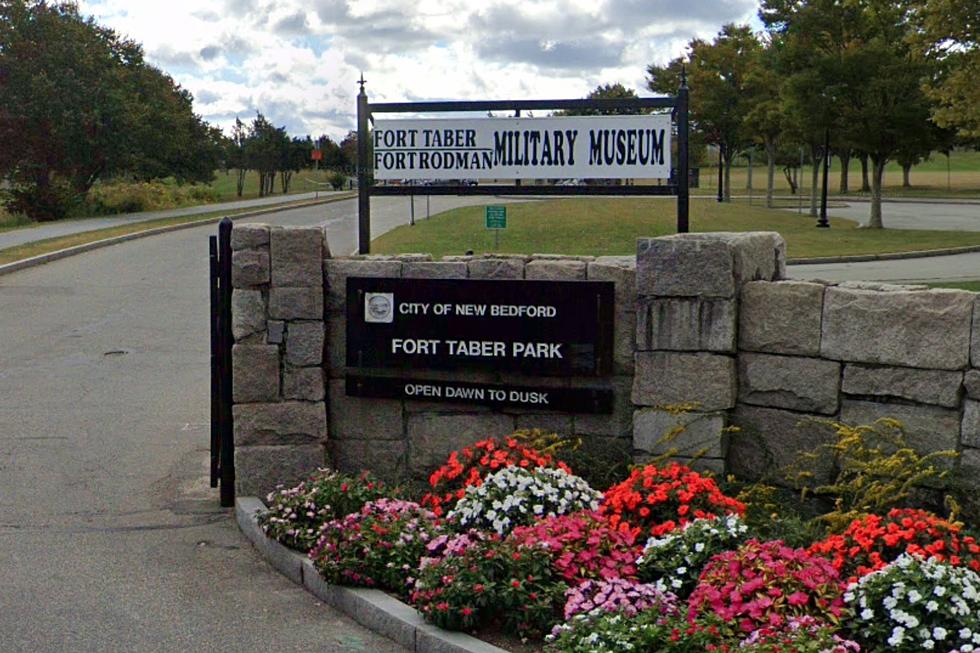
Illegal Immigrants: Danger or Dreamers?
Earlier this week, President Donald Trump announced his blueprint for immigration reform, which would give a 12-year path to citizenship for 1.8-million of the so-called Dreamers.
However, some have accused the President, in his State of the Union speech, of equating Dreamers and DACA recipients to members of dangerous gangs such as MS-13, many of which are comprised of illegal immigrants.
Bristol County Sheriff Thomas Hodgson tells WBSM's Barry Richard that President Trump isn't saying that the majority of dreamers are gang members, but that some gang members, especially in MS-13, are dreamers. But he says gang members or not, he wants to see an end to any illegal immigrant being able to commit a crime against a united states citizen.
"Whether it's by a gang member who is here illegally, or a person who entered our country illegally, and decided they wanted to murder someone or rob someone or rape someone, the fact is those crimes never would have happened if those people were not encouraged to come here, and snuck across the border," he said.
Hodgson says gangs like MS-13 begin recruiting gang members as young as age 10 in places like El Salvador, Honduras and Guatemala, and have them established as criminals before they even arrive in the U.S. The sheriff says those kids are then carted across the border and forced to live in foster homes among a culture and language they don't understand, and fall back into U.S.-based gangs that offer familiarity.
With President Donald Trump announcing his "four pillars" of immigration reform, Democrats are faced with the question of whether or not they want to allot $25 billion for a wall along the U.S-Mexican border, as well as an end to so-called chain migration and the visa lottery system, in order to get amnesty for the Dreamers.
Sheriff Hodgson says Congress is finally beginning to realize that the American people want immigration reform, and that border security has to be a major part of that.
"Everybody knows, if you don't secure the border, you can do all the reform you want and it won't make a difference," he said. "Because you never closed off the end of the pipe, and the water just kept running through."
Helena DaSilva Hughes, Executive Director of the Immigrants' Assistance Center of New Bedford, also appeared on Richard's show Thursday, and she agrees that better border security is needed to solve the immigration issue. However, with the March 5 deadline to end DACA fast approaching, she doesn't think Congress will pass immigration reform in time.
DaSilva Hughes thinks DACA will be terminated, putting immigrants in fear of deportation. She said it will drive immigrant parents "underground" and keep them from applying for programs that will help their children formerly protected by DACA.
"They won't be applying, in fear that information they're sending when applying for benefits is going to be shared with (Immigration and Customs Enforcement), and it's going to alert them of their undocumented parents, and then (ICE) is going to come and get them," she said.
DaSilva Hughes estimates about 2,000 illegal immigrants in New Bedford alone are likely to "go underground," and she says that also means they won't want to come forward and alert law enforcement when they know of crimes that are taking place among the immigrant community. Hodgson, however, said illegal immigrants informing police of other crimes is a "red herring" that doesn't happen all that much.
Still, DaSilva Hughes believes the end to DACA will lead to a lack of health insurance, malnutrition and possibly even homelessness among children that were previously protected.
"It's a trickle-down impact to a point where it's really, really sad," she said. "I always say children, if they're born here, if they're not born here, sometimes they are victims of their parents' mistakes."
DaSilva Hughes also says DACA students will lose their work permits, won't be able to drive and possibly won't be able to attend school anymore.
"Once that ends, they'll be in exactly the same situation as their parents, working for peanuts," she said.
More From WBSM-AM/AM 1420









